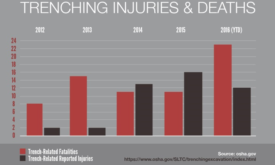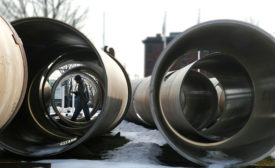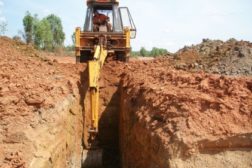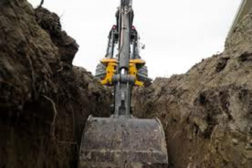Home » excavation
Articles Tagged with ''excavation''
Top 10 underground utility myths revealed
AEM kicks off safety awareness campaign
September 17, 2015
Fla. worker trapped, injured in trench collapse
Management repeatedly warned of unsafe conditions
July 18, 2014
Cave-in buries worker waist-deep in trench
One month later: company still has no cave-in protection
September 17, 2013
Workers in TX exposed to cave-in hazards
SER Construction Partners LLC cited
February 25, 2013
Become a Leader in Safety Culture
Build your knowledge with ISHN, covering key safety, health and industrial hygiene news, products, and trends.
JOIN TODAYCopyright ©2025. All Rights Reserved BNP Media.
Design, CMS, Hosting & Web Development :: ePublishing




